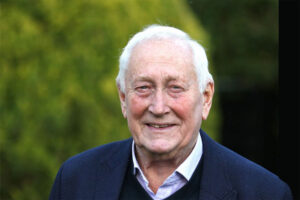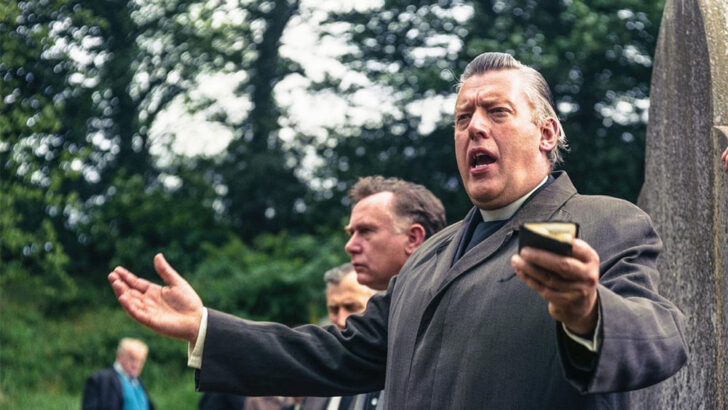Keeping the Faith, by Alf McCreary
(Messenger Publications, €14.95 / £12.95)
This is a sombre and sobering book, one dealing with the Northern situation that could have driven a saint to despair, but it is also a book that carries a final message to never despair, however appalling and inhuman the situation.
Alf McCreary tells the story of his life as a journalist and a communications person in the context of a changing Northern Ireland. The first third of the book is devoted to an account of his Protestant background and early years, down to leaving Queen’s in 1964 and becoming a journalist on the Belfast Telegraph.
These pages provide a narrative of hope, that the university educated generations (the production of the Butler’s Education Act of the mid 1940s – a gift of British colonialism that goes on giving – that began the social change that was to lead both to social warfare and to the emergence of a that new Ulster.
Justice
McCreary picks out two figures in the time to whom he thinks full justice has never been done. The first is Terence O’Neill, a man too often seen by Catholic nationalists as an old landed non-entity and not a modern figure at all. He sees him in quite a different and more admiring light, as a man who tried to do his best for his country but was defeated by the granite-like nature of the Unionist tradition.
The other important figure in his view of things was his editor at the provinces leading paper, John E. Sayers, of whom he gives a most penetrating and absorbing account, again of a good man trying his best to shape the opinions of a stolid society that saw no need for change, at a time when the demands of that younger generation to which McCreary belongs was becoming more insistent.
The middle of the book, however I found the hardest to read, for it is devoted to what happened when those “dogs of war” were released, and havoc followed.
A pivotal point is his account of the Kingsmill massacre ( January 5 1976) was when a van with twelve workers from a Glenanne factory was stopped by gunmen. They lined the men up along the side of the road, released one because he was “a Catholic” and mowed down the others.
He gives over the chapters a chilling account of Rev. Ian Paisley and his activities in setting the conflict going and encouraging it”
Alf was sent to the scene by his editor because it was “his own place” near Bessbrook. What has to be asked in this context is what do the terms Protestant and Catholic mean? He rightly doubts that the designation were rooted in any way in true religion, but were, as in the massacres by Hutu militias of the Tutsi in 1994, were tribal distinctions.
This event and its consequences opens up the theme that is present all through the book, but which dominates the last half: what is the role of “faith” in Ulster?

He gives over the chapters a chilling account of Rev. Ian Paisley and his activities in setting the conflict going and encouraging it.
Virtues
Some see him as a man with some virtues: he was kind to Catholic constituents. But these pages deal in a different man entirely, an embattled crusader against Romanism. But this is places in a context of the growing efforts in making and sustaining peace and healing, despite such setbacks as the Enniskillen bombings. Some readers may feel he does not “balance the account” with similar atrocities committed on Catholics, but this is not so: he is quite clear about the horrors of the Divis Flats in Derry for instance.
The last five chapters are powerfully revealing, especially two dealing with St Patrick as the bringer of this conflicted faith to Ireland, which explores just how deeply rooted conflict may be.
Eventually the significantly called Good Friday Agreement comes, and peace rather than murder begins to dominate Ulster discourse.
The Christian ideal has not been tried and found wanting. It has been found difficult and left untried”
The last chapter is entitled “Keeping the Faith” and is perhaps the most significant, for having spilt all that blood an over religious society in the island of Ireland is faced with a flight from religion in the younger generations. But is it any wonder, he asks, if that has happened faced by the murder and mayhem in the north and the gross revelations about clerical abuse in the South.
Reconciliation
But that faith, Alf McCreary seems to suggest is still vitally important, because it is perhaps only in the deeper resources of Christianity that reconciliation might yet be truly found.
Towards the end he quotes a remark by G. K. Chesterton, who was longer a Christian before he ever became a Catholic, about the reality of Christianity.
Chesterton wrote that “the Christian ideal has not been tried and found wanting. It has been found difficult and left untried. He who begins by loving Christianity better than Truth will proceed by loving his own sect or church better than Christianity, and end by loving himself better than all.”
What is needed is a return to the essential message of Jesus in the gospel that we must love God and love our neighbour as oneself (Mark 12: 31-31). There lies the answer to all sorts of division: a deep regard for the lives and feelings of others.
This is a book I found almost unbearable to read, given the terrible events the author witnessed and lived through. But essentially this is a book with a message of hope for all. McCreary’s has been a life well and truly lived, and it is a life worth reading about, and above all, learning from.


 Peter Costello
Peter Costello Dr Ian Paisley
Dr Ian Paisley